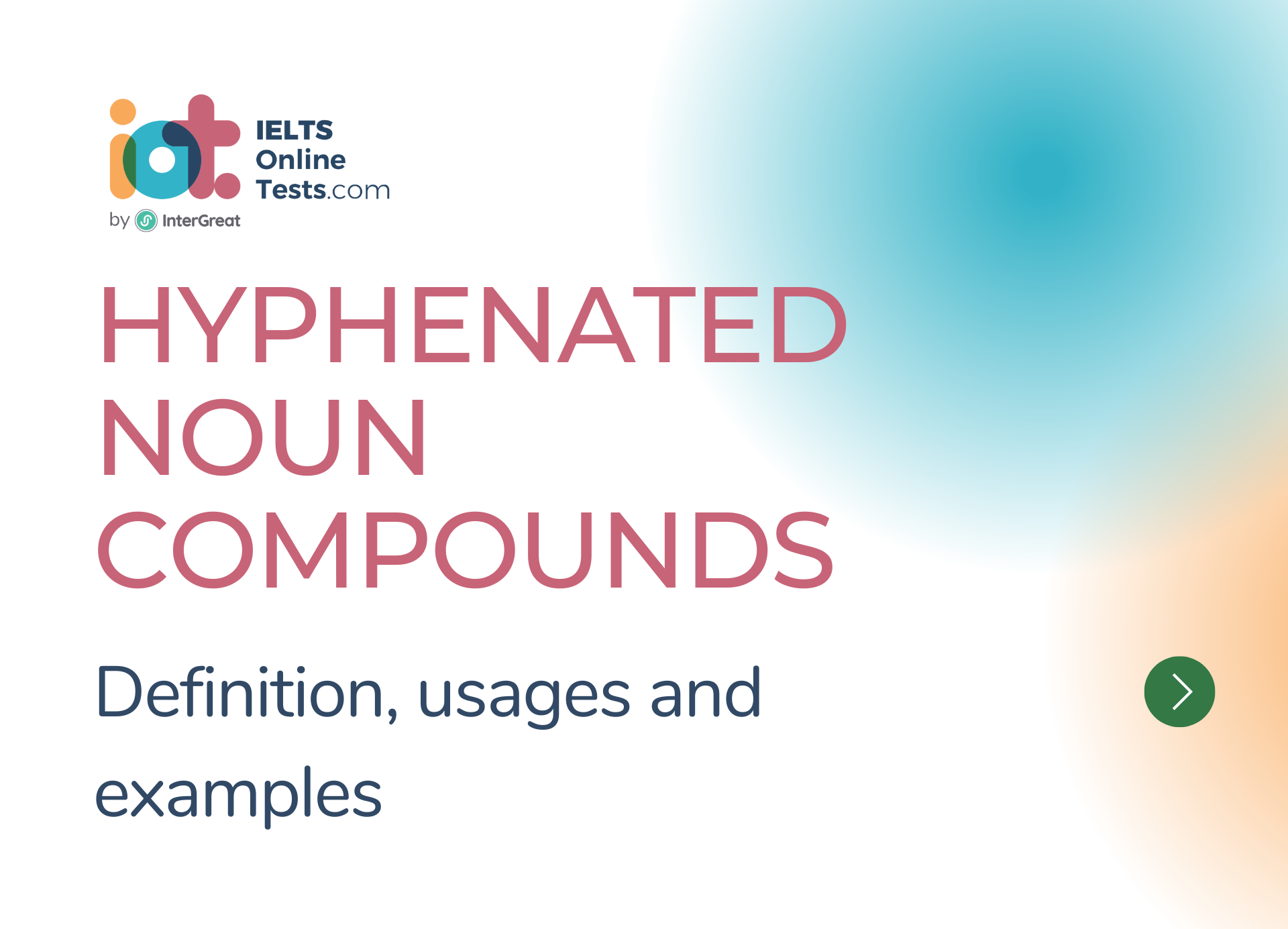
Hyphenated Noun Compounds
Hyphenated noun compounds, also known as hyphenated compounds, are a type of compound noun formed by connecting two or more words with hyphens. Unlike closed compounds (where words are merged together without spaces or hyphens) or open compounds (where words are separate), hyphenated compounds have hyphens between the words.
Here are some important details about hyphenated noun compounds:
Formation:
Hyphenated compound nouns are created by linking two or more words with hyphens (-) to form a single term. The hyphens help clarify the relationship between the words and indicate that they function as a unit.
Examples:
- Well-being:
- formed by combining "well" (indicating a state of being in good health or happiness) and "being" (the state of existing or living).
- Sister-in-law:
- formed by combining "sister" (a female sibling) and "in-law" (a family relationship by marriage).
- High-school:
- formed by combining "high" (indicating a level above average or elevated) and "school" (an educational institution).
Semantic Relationship:
Hyphenated compounds, like other compound nouns, have a specific meaning based on the words they combine. The relationship between the words can vary:
Noun + Noun: The first noun modifies or describes the second noun.
- Example:
- Coffee-table (a table specifically used for placing coffee).
- Example:
Adjective + Noun: The adjective provides additional information about the noun.
- Example:
- High-school (a school providing education at a higher level than elementary or middle school).
- Example:
Verb + Noun: The verb functions as a modifier for the noun.
- Example:
- Make-up (cosmetics applied to enhance appearance).
- Example:
Plural Formation:
For hyphenated compound nouns, the plural is generally formed by adding the plural marker to the primary word or the noun part of the compound:
- Example:
- Well-beings,
- sisters-in-law,
- high-schools.
Stress and Pronunciation:
The stress in hyphenated compounds is usually placed on the first syllable of the compound:
- Example:
- WELL-being,
- SISter-in-law,
- HIGH-school.
Hyphenated noun compounds are commonly used to create specific and descriptive terms in various domains, such as professions, relationships, and specialized fields. Understanding their structure and meaning allows for clear and precise communication.




